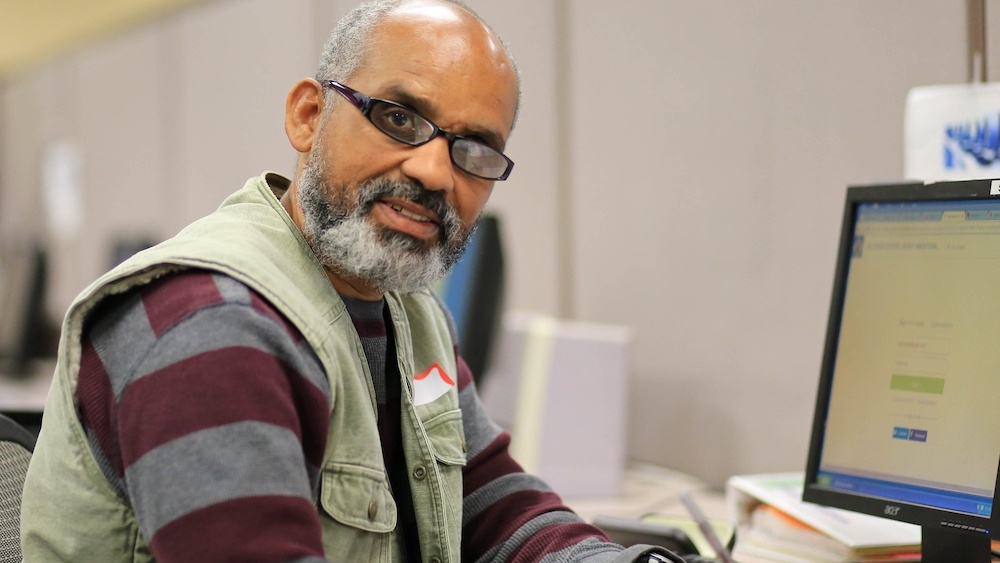If anything can hold us together during this pandemic, it’s the internet. Thanks to the world wide web, life has continued to zoom forward and onward so that we can make fun of everything including our dependence on the internet. Who can even remember life before quarantine memes?
But here’s the thing. Before the pandemic unfolded, one in four Americans did not have access to the internet at home. Race and region further determined the likelihood of a home internet connection even when accounting for age. Rural, Southeastern households lagged behind coastal, urban households. Hispanic, Black and Native American households trailed behind White households in internet adoption by more than 10 percentage points.
Now snap back to life during COVID-19 and you’ll see these discrepancies are only growing.
In Southern California, less than half of LA County residents still hold jobs and 71% of people report an inability to work from home. This of course, is related to your income level, your home environment, and the type of job you hold, on top of — you guessed it — whether or not you have an internet connection solid enough to perform your work duties from home. The layers keep stacking.
In our work, we also encounter many who will turn down or walk away from certain jobs to ensure the safety of their families, particularly those who live in multi-generational homes. Not only does California have the most multi-generational families in the nation, ethnic minorities are also far more likely to live in a multigenerational household, which can make it harder to contain the spread of a virus.
New findings have also confirmed that the coronavirus is having an increasingly disproportionate impact on the poor and communities of color in Los Angeles County. Native Hawaiians and Pacific Islanders have experienced a staggering amount of coronavirus-related deaths in proportion to their population — the highest in the county — followed by the African American and Latino communities. As you can imagine, COVID-19 is affecting everyone differently, but it has pushed certain communities further and further into the margins, and will continue to do so if we don’t intervene.
Trends like these and more have emerged in our work at Goodwill Southern California (yes, the Goodwill). While we’re well-known for our retail stores and donation centers, dollars raised from the social enterprise fund our main work of helping reskill and upskill communities since 1916. Our employment centers, deemed an essential service in LA City and County, have stayed open through this pandemic, providing emergency utility and rent assistance to vulnerable populations throughout the Los Angeles, Riverside and San Bernardino counties.
We often witness the effects and difficulties of intersectional identities first-hand. As part of the federal network of America’s Job Centers (AJC), our employment centers are funded workforce training centers located all across Southern California. They are not intended to specialize in the vulnerable populations we serve: reentry, veterans, disconnected youth, people with disabilities or individuals experiencing homelessness. By adding our Goodwill perspective and experience to this work, we can adapt to the unique needs of the impacted people who walk through our doors.
Technology, like education, has been touted as an equalizer to opportunity. While it’s true that technology has unleashed many new ways to work, we see how many more it has left behind. We feel that our responsibility is to clear existing barriers to employment in an equal and accessible way. By understanding the unique challenges and strengths of our vulnerable communities, we can build systems that provide more job options than “highly-skilled with a computer” or “everyone else.” We can map career pathways and provide a paid work experience so that individuals can keep an income while learning the skills needed to compete in this new economy. If we’re all in this together, we should not wait until the next crisis to be more inclusive in the future of work. That moment is now.
To support the work of Goodwill Southern California, make a donation at give.goodwillsocal.org/DoGOOD or check out Shop Good Vintage, a vintage graphic T's collection where all proceeds will go to the Goodwill Southern California COVID-19 Jobs Accelerator Fund.
____
Goodwill Southern California (GSC) serves individuals with disabilities or other vocational challenges by providing education, training, work experience and job placement services. Each year, GSC prepares and places thousands of individuals into sustainable employment through programs and services offered at three campuses, Career Resource Centers, WorkSource Centers, Deaf, Youth and Veteran Employment Programs throughout Los Angeles (north of Rosecrans Ave.), Riverside and San Bernardino counties.

